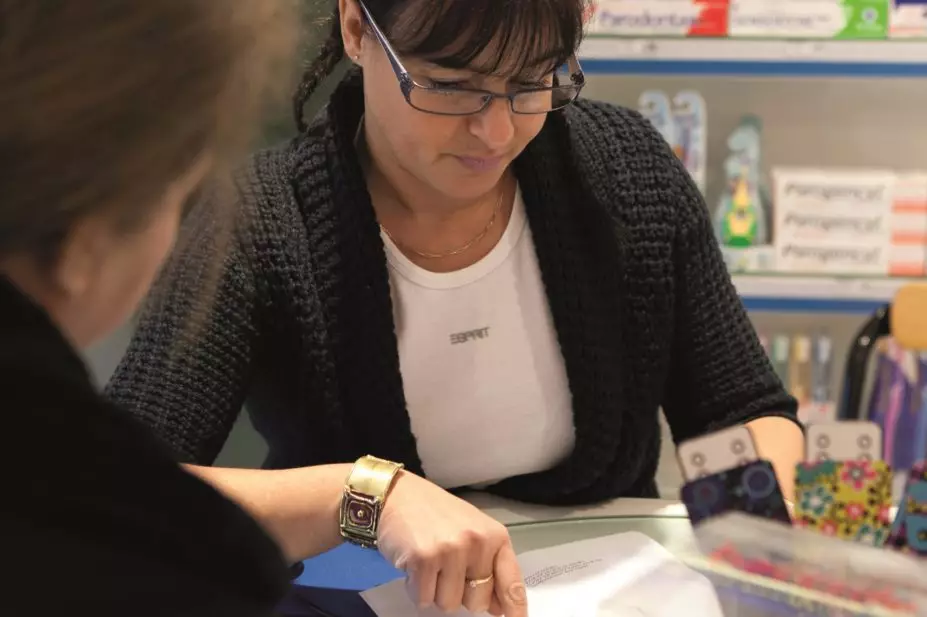
BSIP SA / Alamy Stock Photo
A lung cancer awareness campaign organised by a local practice forum (LPF) referred nearly a third of people presenting to pharmacies with possible symptoms of the disease to their GP for further checks.
Analysis of the campaign found 31% of 267 people identified as having potential symptoms by pharmacy team members were advised to visit their GP, while others were signposted to smoking cessation aids and given information about the symptoms of lung cancer.
Organiser London North West LPF said the campaign had improved public awareness of the signs and symptoms of lung cancer, and that the initiative could be replicated by other LPFs.
The month-long campaign in November 2013, part of Lung Cancer Awareness month, involved 29 community pharmacies in and around north-west London.
Pharmacy team members asked about the symptoms of people requesting cough medicine, throat lozenges, smoking cessation advice or to speak to someone about their cough.
Using a counter aid, the team member asked about symptoms that could indicate lung cancer, including breathlessness, swelling of face and neck, and whether a cough had persisted for more than three weeks.
Those with symptoms were offered patient information advice, directed to smoking cessation treatment, referred to their GP, or supplied an OTC product. Pharmacy team members used a questionnaire sheet developed by the Royal Pharmaceutical Society (RPS) to record the action taken.
Among 267 patients who said they benefited from the intervention, 80% reported one symptom that may relate to lung cancer. This was most commonly a persistent cough, followed by frequent use of OTC products, breathlessness, tiredness and chest infection. A further 14% reported two symptoms, 4.9% three symptoms, and 1.1% four symptoms or more.
GP referral was more likely when patients presented with more symptoms. However, the analysis did not assess referral appropriateness.
Pre-registration pharmacists were less likely than pharmacists to combine two or more interventions. Medicines counter assistants (MCAs) supplied OTC products in response to the presenting symptoms in 60% of cases, twice as likely as pharmacists (30%) and pre-registration trainees (26%).
Stephanie Bancroft, London North West LPF steering group lead, says the campaign interventions supported patients and “helped them to appreciate the difference between minor ailments and serious conditions”.
She adds: “Similar campaigns could be run across the country by LPFs or other groups. Such campaigns would be another way of showing fellow health professionals how pharmacy can contribute to health improvement.”
The report of the campaign has been added to the RPS’s Map of Evidence
, a database of best practice examples for pharmacy.
You may also be interested in
Long service of members

Membership fees 2022
